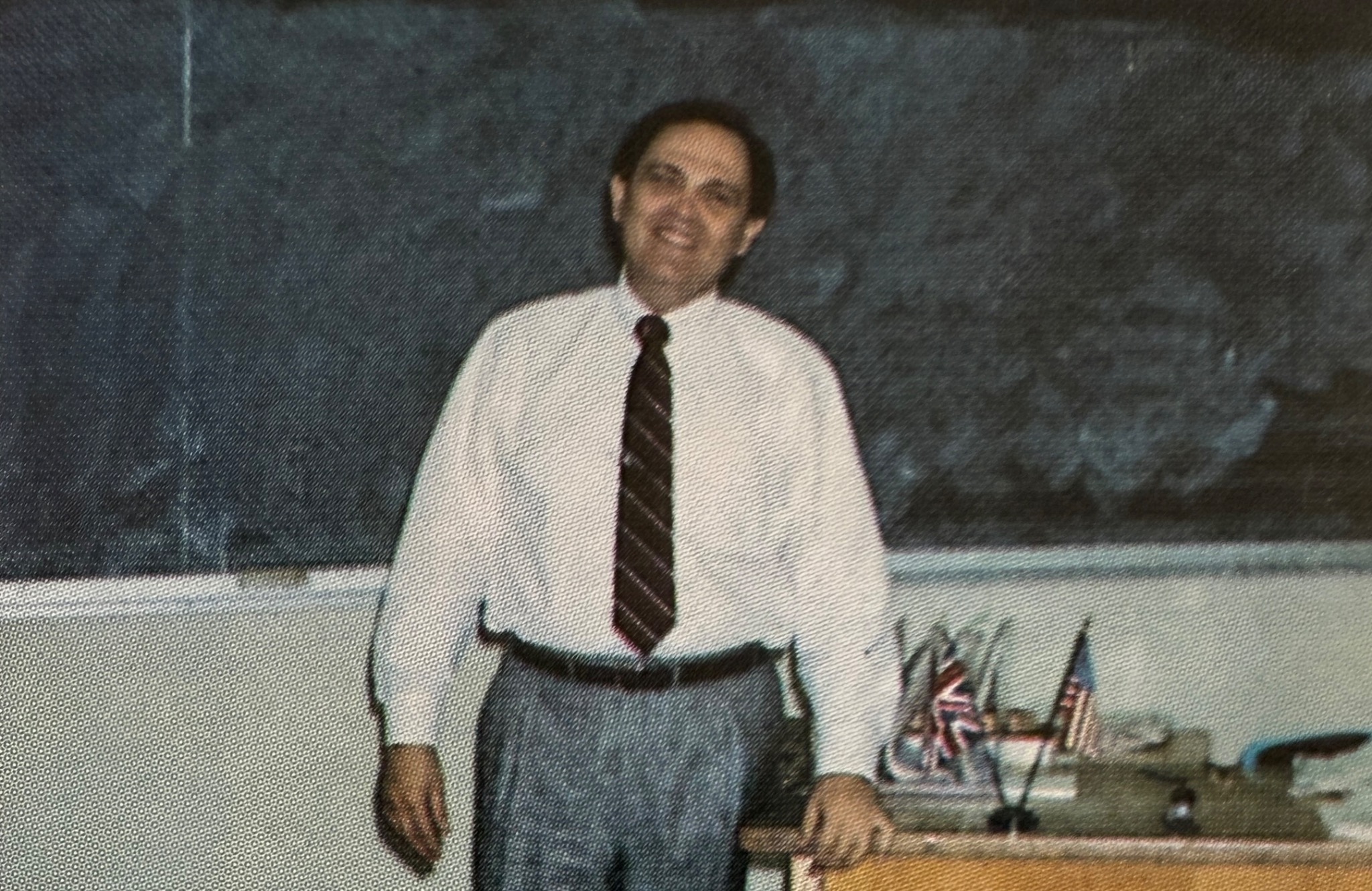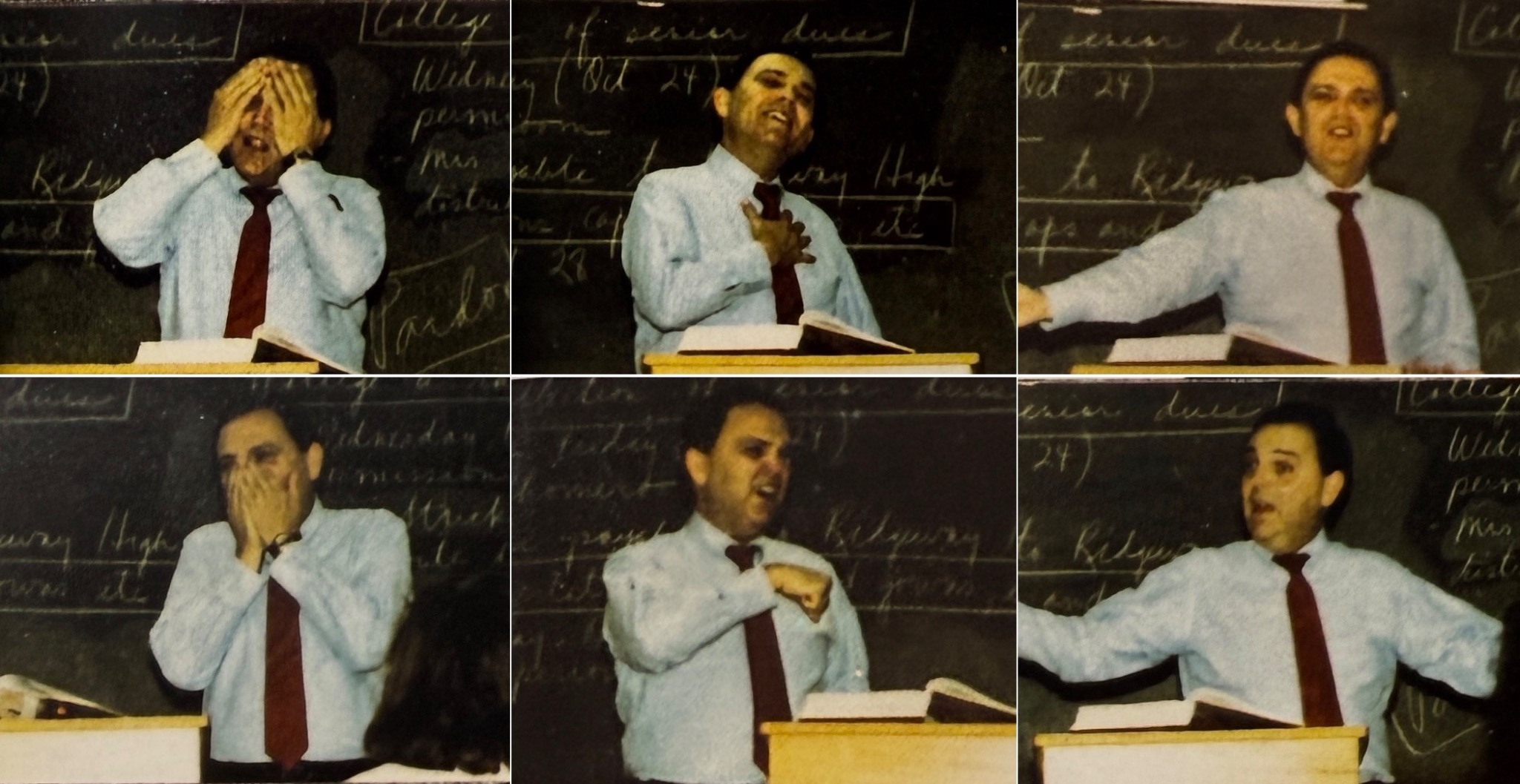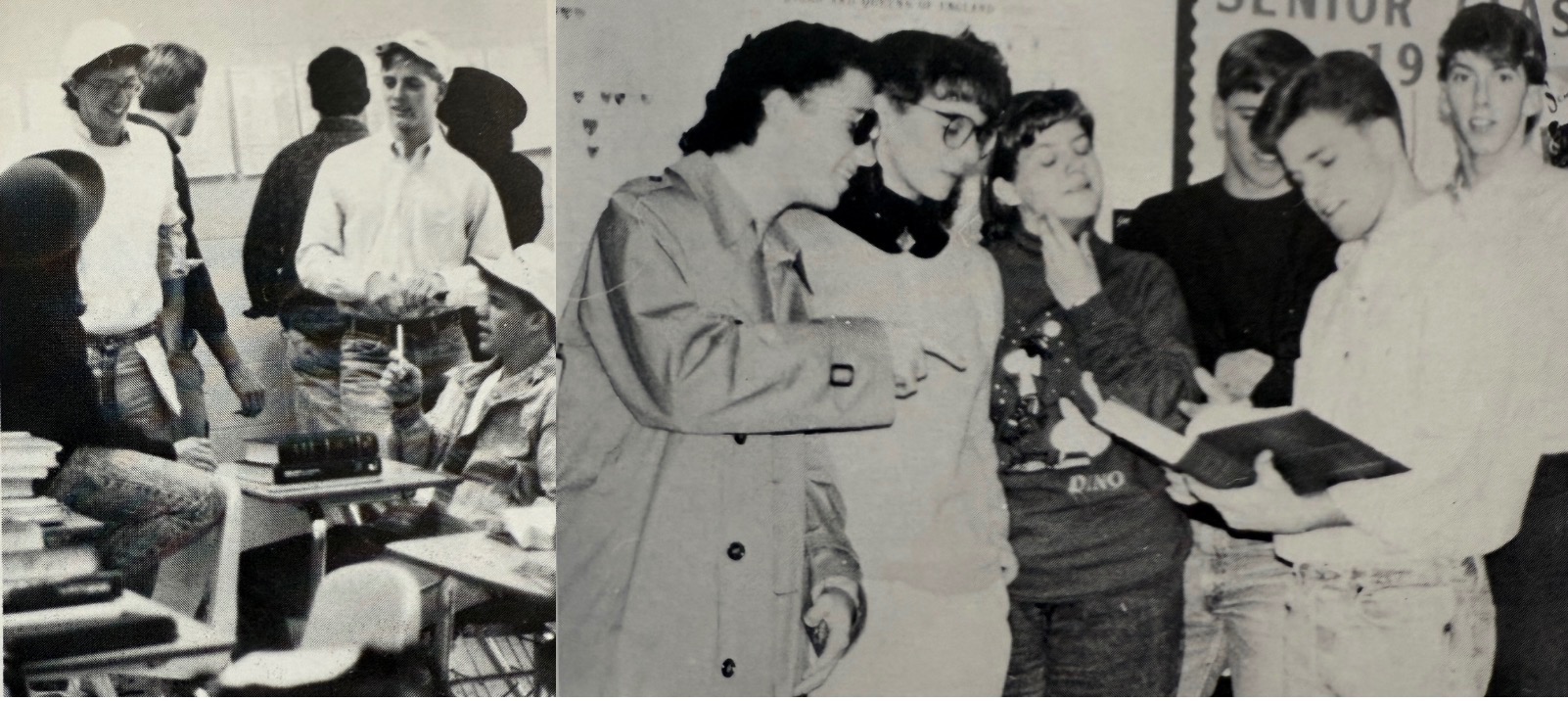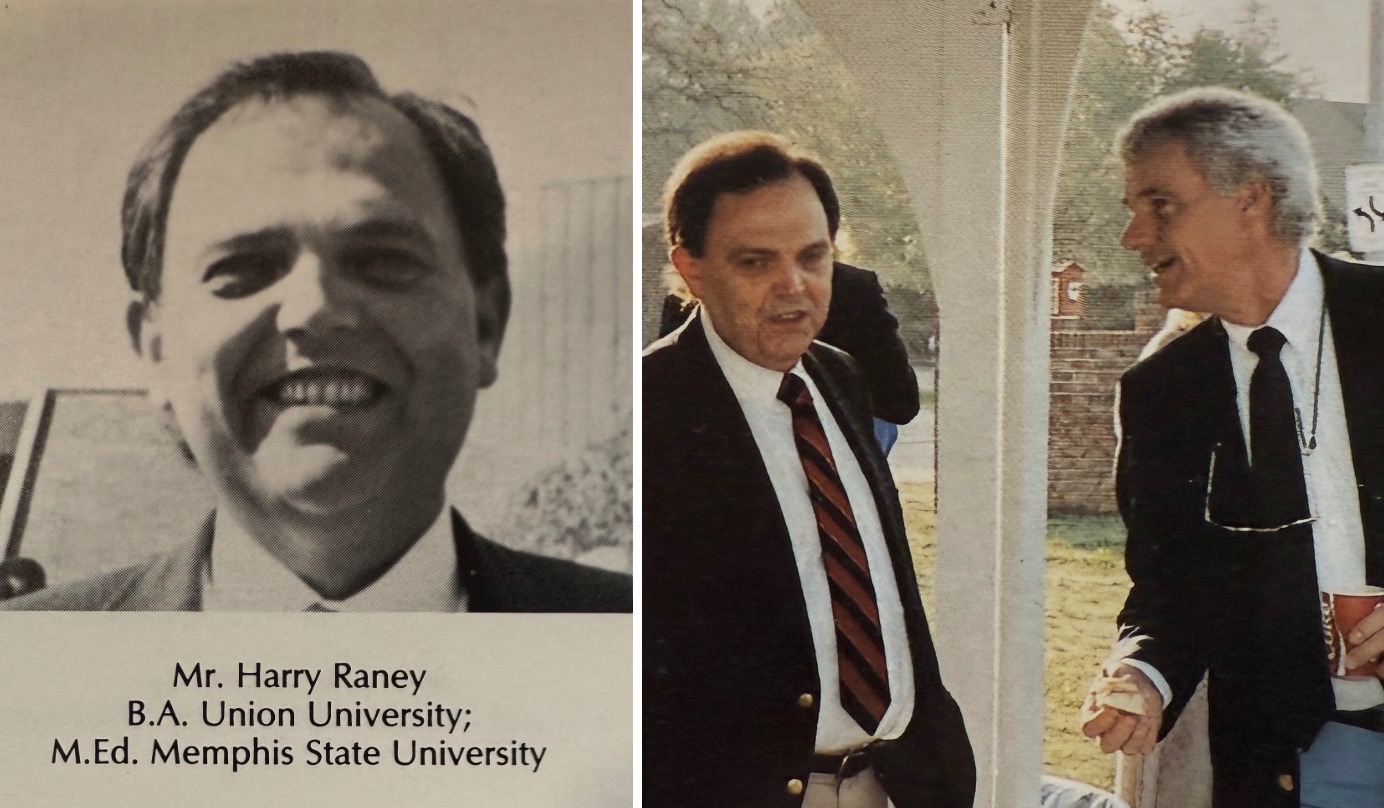
A Remembrance of My Favorite Teacher, Mr. Raney
On a sweltering mid-August day in 1988, I walked into Room 206 at Ridgeway High School in Memphis with knots in my stomach.
It was partially first-day jitters because I was starting my senior year and wanted to perform well for college application purposes the following spring. But my nerves this afternoon had more to do with the class I was beginning, Advanced Placement English, and the esteemed but feared teacher I had heard about for years.
His name was Harry Raney. He was a longtime educator known for being extremely tough, assigning arduous homework, and placing high expectations on his senior English students, especially those in the AP honors class.
At the same time, my older sister Julie and others—while warning me how difficult his class would be—said Mr. Raney eventually became their favorite teacher and they were certain the same thing would happen to me. They were right.
From that first day of class until school ended the following May, Mr. Raney challenged me academically. He strengthened my love of language and literature. And he not only prepared me for the rigors of college, but he helped drive my decision to attend Rhodes, major in English, and pursue a career in writing and communications.
Simply put, Mr. Raney became that teacher in my life—the best teacher I ever had at any level and someone whose instruction and inspiration stayed with me.
Mr. Raney died five years ago next month. With the milestone anniversary of his death approaching and because he was such an influential figure, I thought now was the right time to celebrate publicly—albeit posthumously—this distinguished teacher I’ve been a fan of for nearly four decades.
The many sides of Mr. Raney
Mr. Raney’s personality and passion were evident the moment I entered his classroom. He dressed the part of an English instructor, decked out in pressed slacks, a crisply starched button-down shirt, and a tie.
He carried himself in an intellectual, professorial, even haughty manner—a turnoff for some, but exactly how I thought someone teaching literature should look and act, even at our public school.
He was seemingly always in motion, rarely still. Mr. Raney would constantly roam the classroom and suddenly stop at a student’s desk to ask them a difficult question, pouncing on those who answered incorrectly or, worse, were too timid to speak.
The second after he asked a question, he’d invariably emit an overly expressive and lilting “hmmm, hmmm?” pressuring you to respond quickly. And if he agreed with the answer, he’d voice his approval with an emphatic “yassss, yassss.”
Mr. Raney’s classroom demeanor was animated and affected, characterized by his signature stunned looks, audible gasps, lightning-quick responses, spirited banter, furrowed brows, and delighted smiles. He was renowned for his exaggerated arm, hand, and body movements—as these yearbook photos show below.

For all the quirks he displayed, tests he administered, papers he assigned, and lessons he imparted, however, Mr. Raney might be best remembered for making students memorize passages of poetry that we had to recite in front of the class.
Studying lines of centuries-old verse and speaking them in front of 30 peers—plus under Mr. Raney’s intent gaze—was panic-inducing, to say the least. But it was another fact of life in his class. And it helped us connect with language in a new and challenging way, a key foundational element in my decision to become a writer.
We memorized several verses from heavyweights like Shakespeare, Keats, Yeats, Emerson, Frost, Whitman, and others—but only one passage truly stands out. A passage that every one of Mr. Raney’s students can recite, at least partially, even decades later. A passage that’s synonymous with this titan of a teacher.
‘Whan that Aprille’
Mr. Raney’s most famous and formidable assignment was making us memorize the first 18 lines of the General Prologue to “The Canterbury Tales,” Geoffery Chaucer’s 1392 epic collection of stories detailing a pilgrimage to the shrine of a dead archbishop.
What made this memorization so tricky is we had to recite the original, Middle English version. Some words look familiar, but the passage is nonsensical without a translation.
It was a daunting task but one we all took seriously. Mr. Raney would roll out a turntable and drop the needle on a record of someone reciting it, allowing us to hear the correct enunciation and proper inflections.

When Mr. Raney called our name on recitation day, those who performed it with a dramatic flair and the feigned accent of Chaucer’s Middle English scored bonus points—or, at least, a coy, affirming smile from our fastidious teacher.
For reference, I’ve pasted below the lines of the General Prologue in the original Middle English. And below that, for your amusement, I recorded myself reciting it a few days ago. To my fellow Ridgeway alums, I’m sure there’s no need to look at the screen; the words just begin flowing on cue.
“The Canterbury Tales” General Prologue
Whan that Aprille with his shoures soote,
The droghte of March hath perced to the roote,
And bathed every veyne in swich licóur
Of which vertú engendred is the flour;
Whan Zephirus eek with his swete breeth
Inspired hath in every holt and heeth
The tendre croppes, and the yonge sonne
Hath in the Ram his halfe cours y-ronne,
And smale foweles maken melodye,
That slepen al the nyght with open ye,
So priketh hem Natúre in hir corages,
Thanne longen folk to goon on pilgrimages,
And palmeres for to seken straunge strondes,
To ferne halwes, kowthe in sondry londes;
And specially, from every shires ende
Of Engelond, to Caunterbury they wende,
The hooly blisful martir for to seke,
That hem hath holpen whan that they were seeke.
–Geoffrey Chaucer
Smith’s rendition
I'm a little rusty, but here's my recitation of the first 18 lines of the General Prologue in Middle English.
All these years later, I must ask: Were we alone here, or were students elsewhere required to memorize these lines? Do high school students memorize any literary passages nowadays?
Being able to recite those 18 Middle English lines from memory might be pointless, a complete waste of brain space, but I like to imagine it was about more than the rote memorization of 128 funny-sounding words. Maybe it helped us absorb the beauty of the language and the story’s meaning in a way we wouldn’t have otherwise.
At the very least, it’s a badge of honor for those who survived Mr. Raney’s English class, a bond we felt having mastered those lines. And my friend Jason LaFerny and I always had fun reciting it at college parties, after a few cocktails, as others listened in looking utterly confused.
My appreciation and understanding of “The Canterbury Tales” did play a more meaningful role in my life several years later. One spring day in 1994, when I was living in London, I rode a motorcoach to Canterbury to visit the same shrine that had drawn those weary pilgrims six centuries earlier.
Unlike the travelers of yore, my journey was neither long nor perilous—it took less than two hours in an air-conditioned bus—but I viewed this trip as my own pilgrimage of sorts.
As I stood in the sacred, hallowed Canterbury Cathedral, in the exact spot where Thomas Becket was murdered and later sainted, I thought of those pilgrims whose stories I had read years earlier. I whispered the lines of the General Prologue, smiled, and thanked Mr. Raney for guiding me there. The circle was complete.
‘O Captain! My Captain!’
In June 1989, a few weeks after my high school graduation, I went to see “Dead Poets Society” (a movie I’ve mentioned in a previous blog and a future subject for “A Fan’s Notes). On my way out of the theater, I bumped into Mr. Raney and several other Ridgeway teachers who were on their way in to watch the film.
It was a fitting, fortuitous encounter because Mr. Keating, the character played brilliantly by Robin Williams, reminded me of Mr. Raney. I found it uncanny how the fictional Mr. Keating and the real Mr. Raney taught many of the same passages and provided much of the same encouragement for their respective groups of senior English students.
Indeed, Mr. Raney was our Mr. Keating—our captain, to borrow from a Whitman poem referenced in the movie. He was so inspirational and influential, in fact, that I considered becoming an English teacher.
I eventually opted to pursue writing and journalism, but Mr. Raney also played a role in that decision. He was among the first teachers who helped me find my voice and encouraged me to follow my passion.

Reflecting on my time in his class, those nine months under his tutelage, I see now that Mr. Raney’s impact was immense, more profound than anyone outside my parents and perhaps even more than them.
That’s why I felt compelled to honor him in “A Fan’s Notes.” A good teacher is something in life worth treasuring, which becomes more important as the years go swiftly by. (OK, Ridgeway peeps, anyone catch that reference?)
My only regret is that I didn’t write this tribute while he was still alive. I wish I could thank him, in person, for everything he gave, not just to me but to all his students over the years.
I also wish I had better photos than the ones in this post, which I took with my phone from old Ridgeway yearbooks. But while these pictures are faded and fuzzy, his legacy as an extraordinary, life-changing teacher will forever be crystal clear.
RIP Mr. Raney
The inimitable, incomparable, indefatigable Harry Raney died on April 17, 2020. The guest book from his online obituary is further proof of his remarkable impression on former students and colleagues.
I found it appropriate, even poetic, that he died in the month of Aprille, which I mentioned on my friend Graham Butler’s Facebook post, where I learned of Mr. Raney’s untimely passing in Jackson, Tenn., at age 75.
I hope rain showers fell sweetly on that April day five years ago, just as Chaucer described the English countryside in the opening line of “The Canterbury Tales.”
And I hope Mr. Raney—a teacher I’ve been a fan of since I first sat in his classroom decades ago—is resting in peace with the understanding that he made a magnificent and monumental difference in the lives of so many.


Post a comment